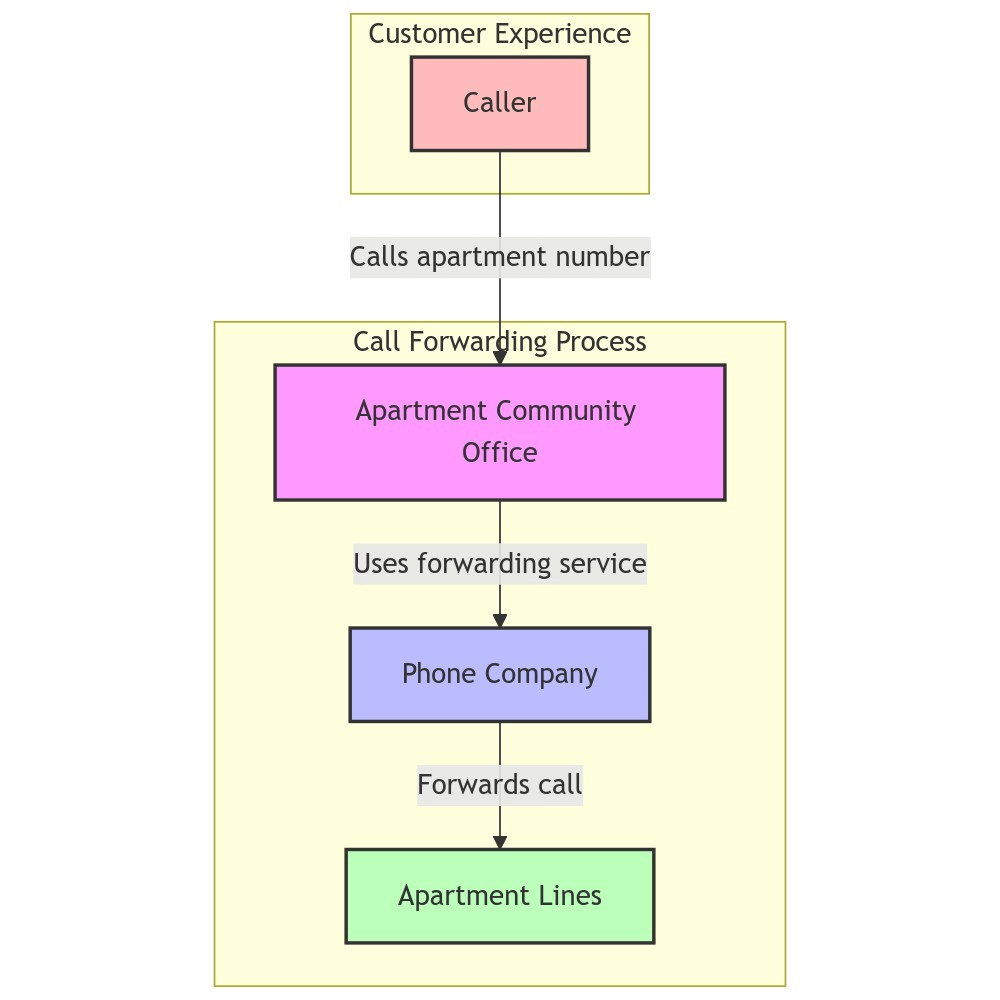Call forwarding
There are two major kinds of call-forwarding:
- Standard Call-Forwarding
a.k.a. Manual Call-Forwarding
If you have the Standard Call-Forwarding feature from your telephone company, you may forward your phone to the answering service by dialing 72# (AT&T users) or *72 (Verizon and most other providers) followed by your assigned answering service number. To disable call-forwarding, dial 73# (AT&T users) or *73 (Verizon and most other providers). - Automatic Call-Forwarding
a.k.a. Fixed Call-Forwarding, Call-Forward No-Answer
If you have the Automatic Call-Forwarding feature from your telephone company, you will need to contact a telephone company representative to configure your phones to forward to your assigned answering service number, and configure the number of rings before the phone is forwarded.
Note: While automatic call-forwarding is convenient, it is also much less flexible. Apartment Lines recommends that all customers using Automatic Call-Forwarding also obtain Standard Call-Forwarding on their phones.
How call forwarding works
This flowchart outlines the call forwarding process for an apartment community when a resident or caller contacts the main office number:

Customer Experience
Caller
The process begins when a caller dials the main office phone number to reach the community office.
Call Forwarding Process
Apartment Community Office
- The office manages incoming calls, but when staff are unavailable (after hours or during busy times), the apartment community uses a call forwarding service set up through their phone service provider.
- This service automatically reroutes incoming calls based on specific conditions (such as after hours).
Phone Company
- The phone company facilitates the forwarding service by rerouting the call according to the predefined settings configured by the community office.
Apartment Lines
- Once the call is forwarded, it reaches Apartment Lines.
- Residents can leave a voicemail for non-emergency situations or easily reach an operator if necessary.
- Operators relay messages based on predefined instructions.
